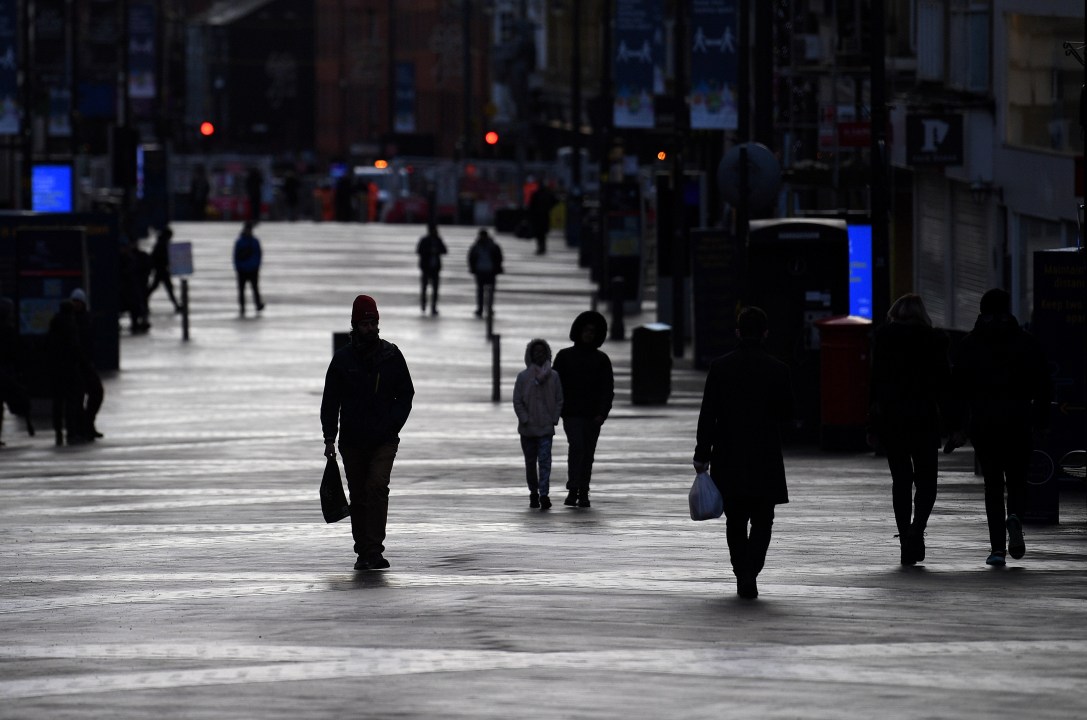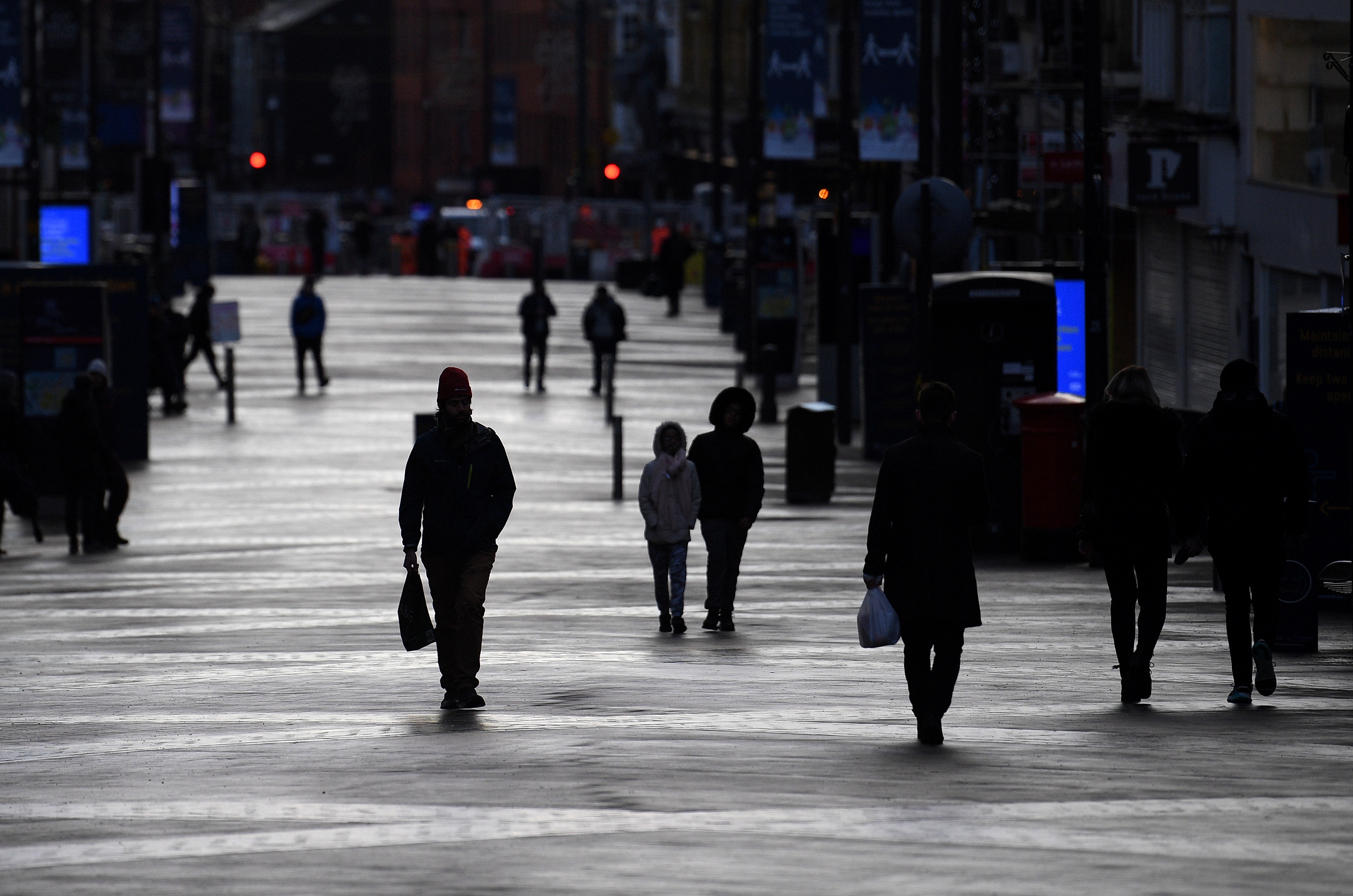There is a long-standing belief that herd immunity can only be achieved once between 60 to 80 per cent of the population is immune. This notion, however, does not take into account the fact that immunity can be achieved at a lower figure if social distancing measures are factored in. The herd immunity threshold, in fact, is not fixed — it depends on the amount of social distancing we are doing, and, specifically, on what epidemiologists call the ‘basic reproduction number’, known as the R0-value.
A PCCF (standing for ‘predictor-corrector coronavirus filter’) measurement tool is under development at the University of Bristol. It has successfully projected the trajectory of the virus, making use of models to help it do so. Models might have a bad name after the last year, but ours has chimed with the official ONS estimates of the virus week after week. It can also be used to illustrate how England could relax its restrictions as more people are vaccinated.
As with all models, everything depends on the assumptions. So here goes. As three-quarters of a million jabs had been given in England by 27 December and AstraZeneca can supply 2 million doses per week, let’s suppose full-scale inoculation began on 28 December at the rate of 6.75 million injections per month in England, until 95 per cent of the population has been covered, prioritising those over 65 to start with. Let’s go with the Oxford figure; a vaccine that’s 70 per cent effective 22 days after the first dose.
Let’s also assume ministers succeed in keeping the R-rate at 0.9. These assumptions, when plugged into our model, show that infections, which went up over the Christmas period, then start their long decline — fizzling out by the end of the summer as they are driven down by the vaccinations.
The above graph shows a virus under control. But importantly, under our model, this can happen along with the progressive removal of restrictions starting next month. The below chart shows how a Social Distancing Index (SDI) can increase even though the R-rate is kept below 1 — the higher the SDI goes, the fewer restrictions. Getting the R-rate down below 1 after Christmas requires a tightening in social distancing, but then things can be steadily returned to normal, with that trend gathering pace from mid-January when the benefits of large-scale vaccination start to be felt.
The new variant makes its presence felt in the second chart because, although it doesn’t make people any more ill than the original, Public Health England has found it to be 50 per cent more contagious. This has the effect of raising each point on the social distancing scale up by 50 per cent — so that the degree of restriction that would have merited a 2 on the old scale is given a new score of 3, for example. And while 3 used to be the highest point of the original range, the top of the scale becomes 4.5 now that the new variant is with us. This means that full opening up is not possible in mid-May, when the SDI is 3, but has to wait until late June, by which point the SDI will have reached its maximum value of 4.5.
Even if the government’s restrictions succeed in reducing infections in the way shown in chart 1, the level of immunity in the population will continue to rise as more and more people get infected and recover from the virus. In my earlier article, I put the proportion already protected at 30 per cent: 17 per cent already having had Covid-19 and 13 per cent having pre-existing T-cell immunity. With the virus spreading fast, we could end up with 20 per cent recovered from the infection two-thirds of the way through January, with population immunity therefore exceeding 33 per cent at about this time.
What’s more, vaccinations will start to have a big positive effect from late January onwards, so that the immunity level may well reach 40 per cent by early February, with perhaps half of us immune by mid-March, under a realistic roll-out scenario. This is based on the premise that we could complete 6.75 million doses a month. While the December’s rollout was much smaller, very soon we are likely to see a much scaled-up operation.
But we need to face the possibility that getting control of the new variant of the virus in the way described might become impossible due to the much higher infectiousness we know it possesses. Accounting for the new level of contagion might require us to apply a 50 per cent scale-up to the lowest SDI, 1.2, achieved in England’s November lockdown, meaning that an SDI of 1.8 may be what can be realistically achieved, with an associated R-rate some way above 1.
Fortunately the substantial level of immunity we have built up now comes to our aid. While active infections start going up, their growth is halted by the population’s immunity reaching the herd immunity threshold, just under 45 per cent for this SDI, and this causes the infections to start to recede in early February. See chart 3.
Falling infections mean that the R-rate will have dropped below 1, and once it reaches 0.9, the SDI can be increased and restrictions reduced as in the previous example. The below chart shows the SDI being allowed to climb from the middle of February.
Chart 4 The Social Distancing Index is held initially at its assumed lowest achievable value of 1.8, but it is then increased while keeping the R-rate at 0.9.
The scope for relaxation of restrictions grows rapidly, and it might very well be possible to lift them altogether by the end of April 2021 under this scenario. This is actually two months sooner than under the fully controlled situation, and the price being paid for the earlier opening up is a higher death rate.
It is clear we are not out of the woods by any means and the greater infectiousness of the new virus variant may well cause thousands more people in England to succumb to Covid-19 before the epidemic is finally over. But the restrictions are also damaging — to society, the economy and public health. It is important that we do not prolong them a day longer than we need to. The resulting harm to our economy means we shall be storing up greater health problems in the long-term if we do.
The government must now focus its attention to immunity as a matter of urgency so that it can lift the damaging effect of the Covid restrictions on our economy as rapidly as possible. As always, transparency is paramount. Regular publication of the country’s immunity level would be a good place to start.







Comments